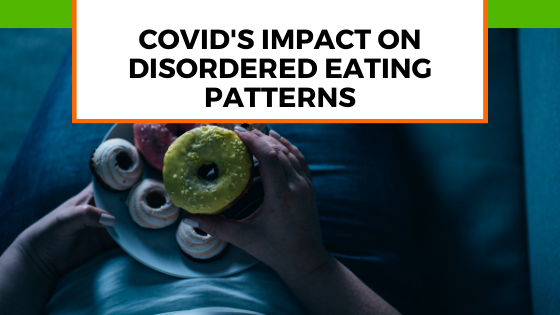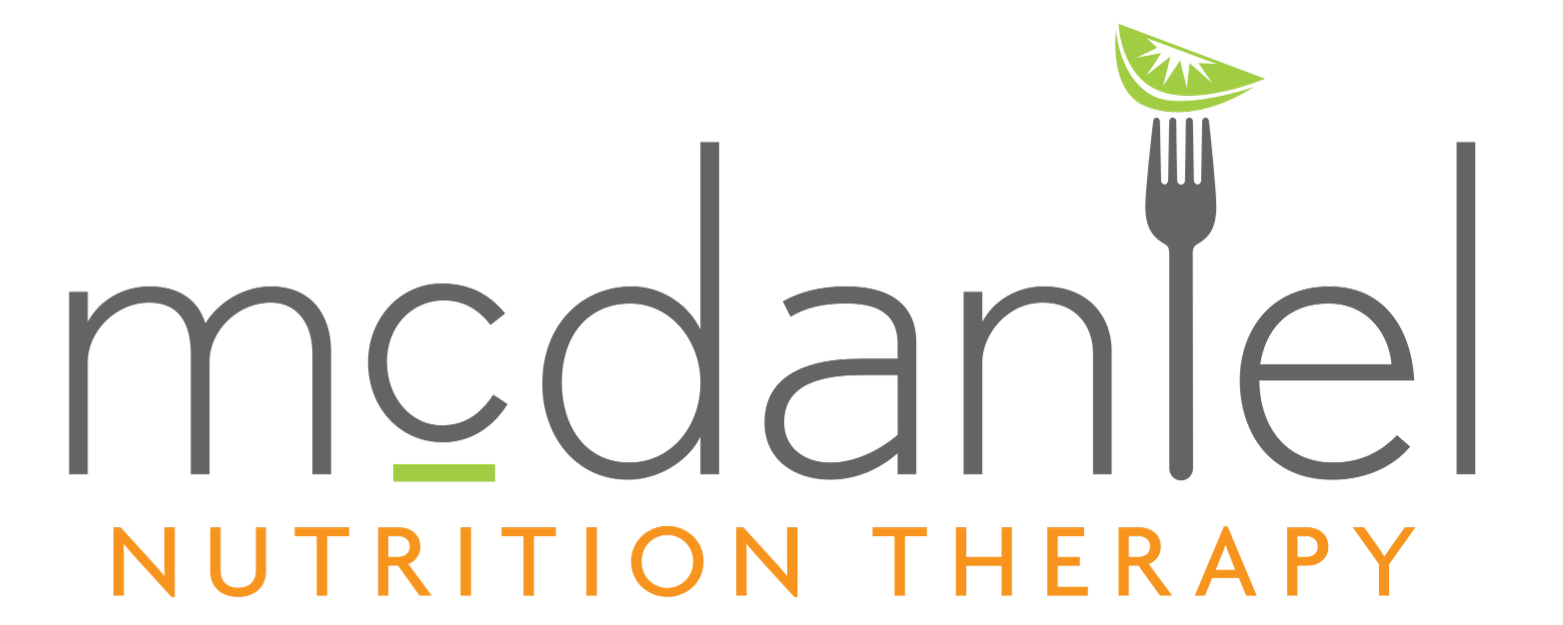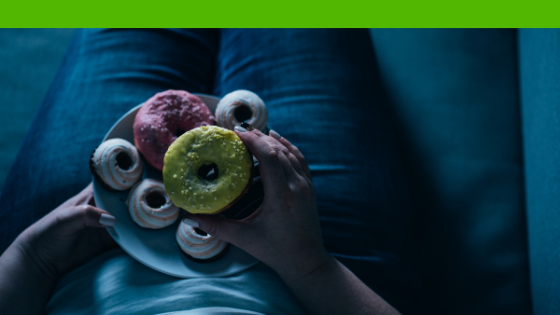The impact on COVID-19 on American’s disordered eating patterns goes both ways. For some, they gained unwanted weight. For others, the stress, isolation and anxiety fostered a rise in disordered eating patterns. In fact, hotline calls to the National Eating Disorders Association are up 70-80% in recent months. For many, eating is a form of control — a coping mechanism tied to stress. The Minnesota Medical School conducted a study to determine what kind of unhealthy eating behaviors were associated with COVID and found six themes of eating changes (1):
- Mindless eating and snacking
- Increased food consumption
- Generalized decrease in appetite or dietary intake
- Eating to cope
- Pandemic-related reductions in dietary intake
- And, a re-emergence or marked increase in eating disorder symptoms
Intuitive Eating: A Possible Strategy
Whether you desire weight loss or recovery from disordered eating patterns, it may be tempting to “hunker down” and strive for more self discipline. But, in our practice, we often lean on a philosophy that can support both: “intuitive eating.” Intuitive eating uses your own body’s internal cues of wisdom compared to externals such as dieting or forcefully trying to follow a meal plan. Practicing intuitive eating may lessen anxiety around food and reset undesirable eating patterns that were caused by the pandemic.
The In’s and Out’s of Intuitive Eating
According to the book ‘Intuitive Eating’ by dietitians Evenlyn Tribole and Elyse Resch, an intuitive eater is someone who “makes food choices without experiencing guilt or an ethical dilemma, honors hunger, respects fullness and enjoys the pleasure of eating.” It’s a style of eating that turns away from external sources and looks inward for body trust. It’s been shown to reduce binge eating, improve health markers such as blood pressure and cholesterol, improve body satisfaction, and decrease depression. Intuitive eating has gained popularity over the past several years and has been confused with being a weight loss program or a free pass to eat cookie dough for every meal. True IE is the most balanced and natural way to eat (2).
Here are some of the most common challenges and frequently asked questions about intuitive eating:
If I give myself full permission to eat anything I want, I’m never going to stop eating junk food.

Many have fallen into the all or nothing mentality when it comes to eating. This can look like being extremely rigid throughout the week and letting loose and overeating on the weekend. This can also look like completely demonizing certain foods such as refined carbohydrates in an effort to lose weight. We often hear statements such as “I could never keep chips in the house or I would eat the entire bag in one sitting.” It may be surprising that after you’ve given yourself permission to eat previously restricted foods, they lose their luster. When we offer ourselves something “enough,” it loses its emotional charge. The more available something is, the less urgency or sometimes even desire there is to have it. It can help to introduce one “trigger food” at a time, so not to feel overwhelmed and continue giving yourself endless permission to all foods. Over time, your body will naturally want other foods and will settle into a good balance and variety.
Can you practice IE with a chronic health condition?
Of course! Obviously, there are times when following an evidence-based nutrition plan makes sense. For example, if you’re allergic to shellfish, but you crave crab legs, it’s in your best interest that you shut down that craving! Intuitive eating with a medical issue doesn’t mean you should eat a food that’s harmful to your body. Remember that Intuitive eating is an act of self-care. Eating in a way that is best for your condition means that you have the upmost respect for your body.! This is also where gentle nutrition comes in, the last principle of IE. Focus on what foods make you feel your best, which will naturally steer you towards a good balance.
How do I stop feeling guilty for eating unhealthy foods?
Feeling guilty for food choices is super common (and accepted) in today’s culture. The first step is to stop naming foods as “good” or “bad”. Not only that, but we often then go on to label ourselves “good” or “bad” for making the decision to eat something. All foods have something positive to offer; whether it be a good dose of vitamin C or fully enjoying a dessert at the restaurant you’ve been wanting to go to. The second step to deal food guilt is to eliminate deprivation and continuously allow yourself to have all foods. Deprivation leads to intense cravings and often overeating, which can then lead to even more guilt!
What’s the difference between mindful eating and IE?
This can be confusing as these two are often used interchangeably. Mindful eating, as we touched on in this post, is the act of staying present while enjoying food, without judgment. Intuitive eating includes mindful eating as part of its philosophy, but extends outside of the eating experience; such as rejecting diet culture, practicing gentle nutrition and exercise, etc. The similarity is that both put focus on listening to your body’s cues. It can be very beneficial to incorporate a regular routine of mindful eating to fine tune intuitive eating skills such as recognizing physical vs emotional hunger.
Will IE help me lose weight?
A resounding: MAYBE. No promises. It’s advised to put weight loss on the back burner when learning how to eat intuitively, but I know this can be hard for people, especially if you have clinicians recommending weight loss. IE essentially gets your body to its set point. If you’re currently under-eating, you’ll likely gain weight. If you’re overeating, you might lose weight. And people often stay around the same size! There can be a time period of your body fluctuating in weight in order to find its happy set point. Although IE is associated with a lower BMI, it isn’t advertised as a weight loss program.
Visit our website www.mcdanielnutrition.com today if you’re interested in working with a registered dietitian to lead you in your own intuitive eating journey.
Resources
https://www.sciencedaily.com/releases/2021/04/210412114740.htm?utm_source=feedburner&utm_medium=email&utm_campaign=Feed%3A+sciencedaily%2Fhealth_medicine%2Fnutrition+%28Nutrition+News+–+ScienceDaily%29– (1)
https://www.intuitiveeating.org/10-principles-of-intuitive-eating/ (2)

